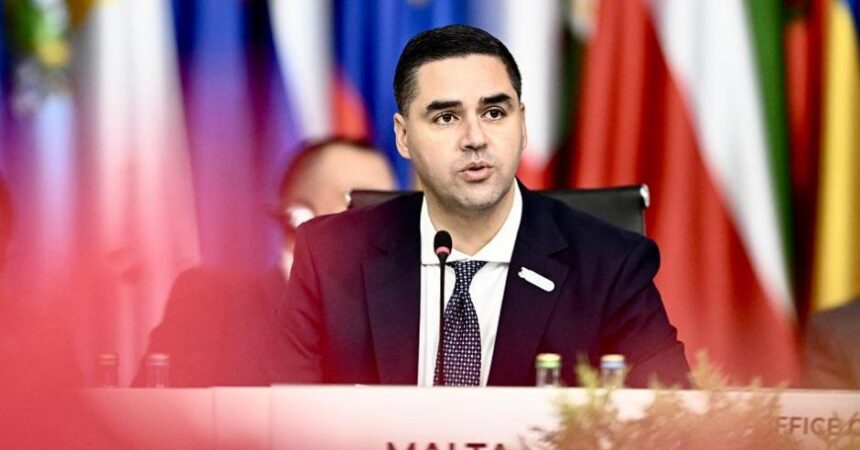As Malta assumed the rotating chairmanship of the Organisation for Security and Co-operation (OSCE) on 1 January 2024, International media freedom watchdog Reporters Without Borders has called on the government to make progress on media reform and in justice for Daphne Caruana Galizia.
RSF urged the government, with Foreign Minister Ian Borg as the incumbent chair, to “lead by example by redoubling efforts to address much-needed press freedom reforms in the country, including ensuring full justice for Daphne Caruana Galizia without further delay”.
Malta was nominated to take over the chairmanship at the start of December, and upon assuming the position, Borg said while it is a great honour, “it is also with a deep sense of responsibility and duty that Malta has taken on this role.”
He added, “Amidst the ongoing complex and critical security challenges, the OSCE’s relevance and survival remain crucial”, Minister Borg noted.
“The decision to appoint the Chair for this year, though made at the eleventh hour, demonstrated a collective ambition to save our Organisation,” he added.
According to an OSCE press release quoting Borg, Malta will not only work to resolve ongoing conflicts in the OSCE area but also place “human rights and the security of people at the centre of its endeavours.”
Borg did not mention media freedom despite it being a key area of focus of the organisation.
The OSCE has a media freedom arm, represented by Representative on Freedom of the Media Teresa Ribeiro. In December, she reiterated the importance of protecting journalists, particularly women, at one of the last OSCE sessions before Malta took over.
“Let us never forget that the safety of women journalists is not only a matter of individual well-being but one of collective concern and a collective responsibility. When they are targeted, it is not just an attack on them as individuals but on the very essence of media freedom and our democracy,” she said.
The statement was the reinforcement of a pledge to condemn acts of online violence against women journalists. Ribeiro called on all member states to increase efforts to champion media freedom and gender equality throughout the OSCE region.
Malta has been subject to multiple reports, legal analyses, and calls for reform to improve its flailing media environment.
Following the assassination of Daphne Caruana Galizia in 2017, an independent public inquiry found the Maltese state bears responsibility for allowing the conditions for her murder to take place. It made a number of recommendations to improve the situation for media workers and media freedom and to ensure nothing like that ever happens again.
However, to date, not a single recommendation has been implemented in full. Further legal analyses by the OSCE and recommendations from the European Commission Rule of Law Country Chapter have also gone unaddressed.
There have been repeated calls from international media organisations and stakeholders on the prime minister to follow up on the public consultation for media reform and not become a “box-ticking exercise.”
In October, Council of Europe Commissioner for Human Rights Dunja Mijatovic publicly wrote to Prime Minister Robert Abela expressing concern about the failure to implement recommendations and the situation regarding freedom of expression in the country. In the same month, organisations called for Maltese authorities to bring to justice all those responsible for Caruana Galizia’s assassination, while the European Parliament called on the government to do more to protect journalists.
This came after Malta plummeted six places in the Reporters Without Borders World Press Freedom Index, ranking 84th out of 180 countries – an all-time low.













“lead by example by redoubling efforts to address much-needed press freedom”
Dear RSF, the double of Zero is Zero.
Maybe two negatives will make a positive?